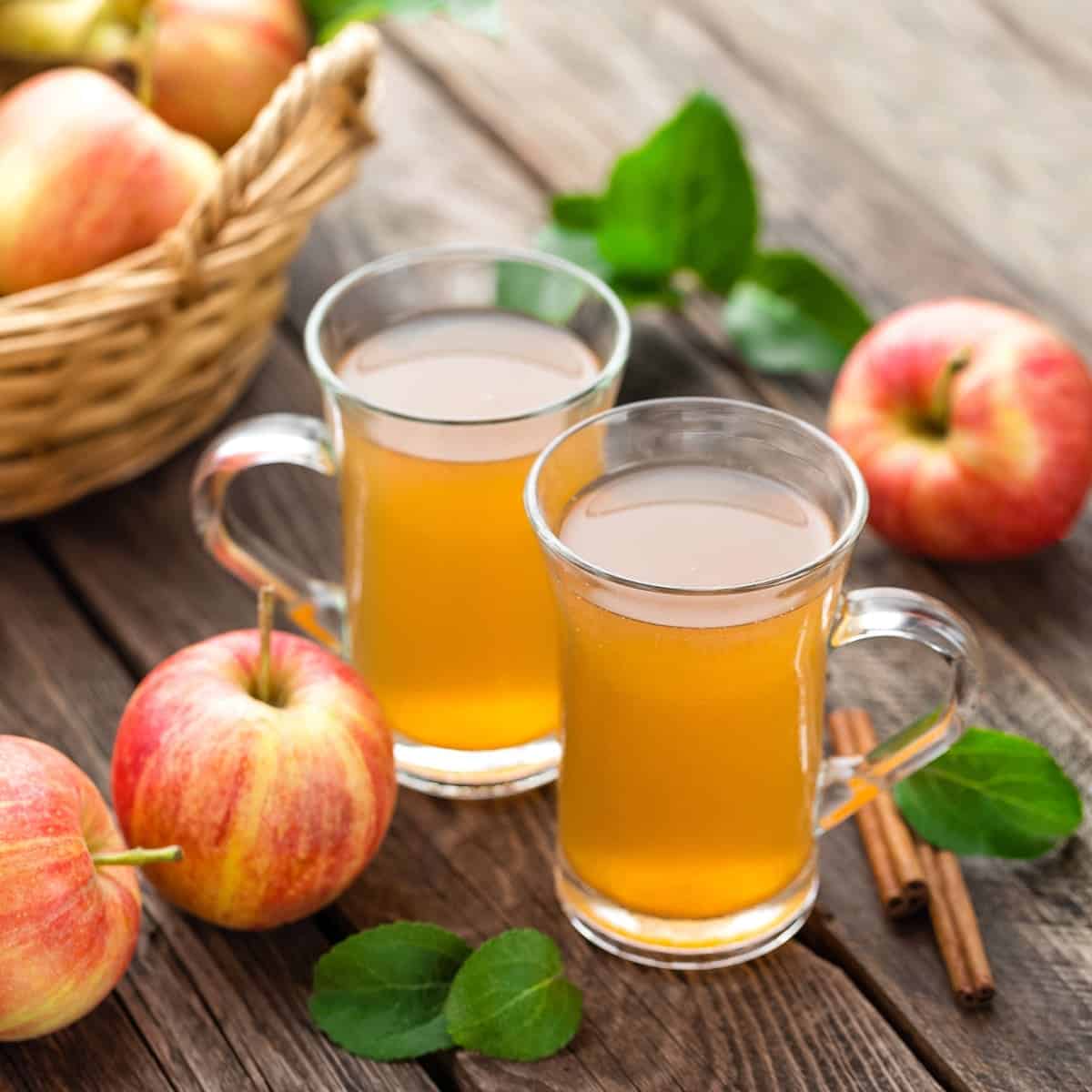
Picture this: you've just found the perfect recipe, but as you start gathering ingredients, you realize that you're missing apple cider. You may be tempted to abandon your cooking endeavor, but wait!
Before you throw in the towel, consider using an apple cider substitute in recipes. This handy trick can save your culinary masterpiece and keep your taste buds happy without sacrificing the flavor of your dish.
I'll explore some fantastic substitutes for apple cider that can keep your cooking adventure on track, even when the original ingredient is nowhere to be found.
Whether you're a seasoned chef or just a curious home cook, these alternatives are sure to pique your interest and expand your kitchen prowess.
Grab your apron and let's dive into the world of apple cider substitutes—because nobody should have to give up on a delicious recipe just because of one missing ingredient!
Jump to:

Understanding Apple Cider
Apple cider is a popular beverage made from apples, known for its numerous health benefits, such as decreasing cholesterol and maintaining balanced blood sugar levels.
Apple cider is frequently employed in many dishes like sauces, stews, marinades, pickles, and salad dressings to lend flavor and acidity.
Health Benefits of Apple Cider
- Blood Sugar Control: Consuming apple cider can help maintain healthy blood sugar levels by slowing down the digestion of carbohydrates.
- Lowers Cholesterol: The antioxidants found in apple cider have been shown to reduce LDL (bad) cholesterol while increasing HDL (good) cholesterol.
- Promotes Weight Loss: Drinking apple cider may aid weight loss efforts due to its acetic acid content, which has been linked with increased satiety and reduced appetite.
Common Uses in Cooking
In addition to being enjoyed as a refreshing drink on its own or mixed into cocktails, apple cider also plays an important role in many culinary applications. Some common uses include:
- Sauces & Marinades: The fruity flavor and slight sweetness of apple cider make it an excellent ingredient for enhancing the taste of meat dishes through marinating or sauce-making processes.
- Pickling: The natural acidity present within this liquid serves as an effective preservative when combined with other ingredients like salt during the pickling process.
- Salad Dressings: Apple cider's tangy taste pairs well with various oils and seasonings, creating deliciously balanced vinaigrettes for salads.
When it comes to cooking, apple cider vinegar is often used as a substitute for apple cider. However, if you don't have apple cider vinegar on hand, there are several other apple cider substitutes that you can use.
Best Apple Cider Substitutes
When apple cider is not available or you're looking for an alternative option to suit your recipe's needs, there are several substitutes that can provide similar flavors and consistencies.
Each apple cider substitute has unique characteristics, which make them a suitable replacement depending on the specific dish being prepared.
1. High-Quality Apple Juice
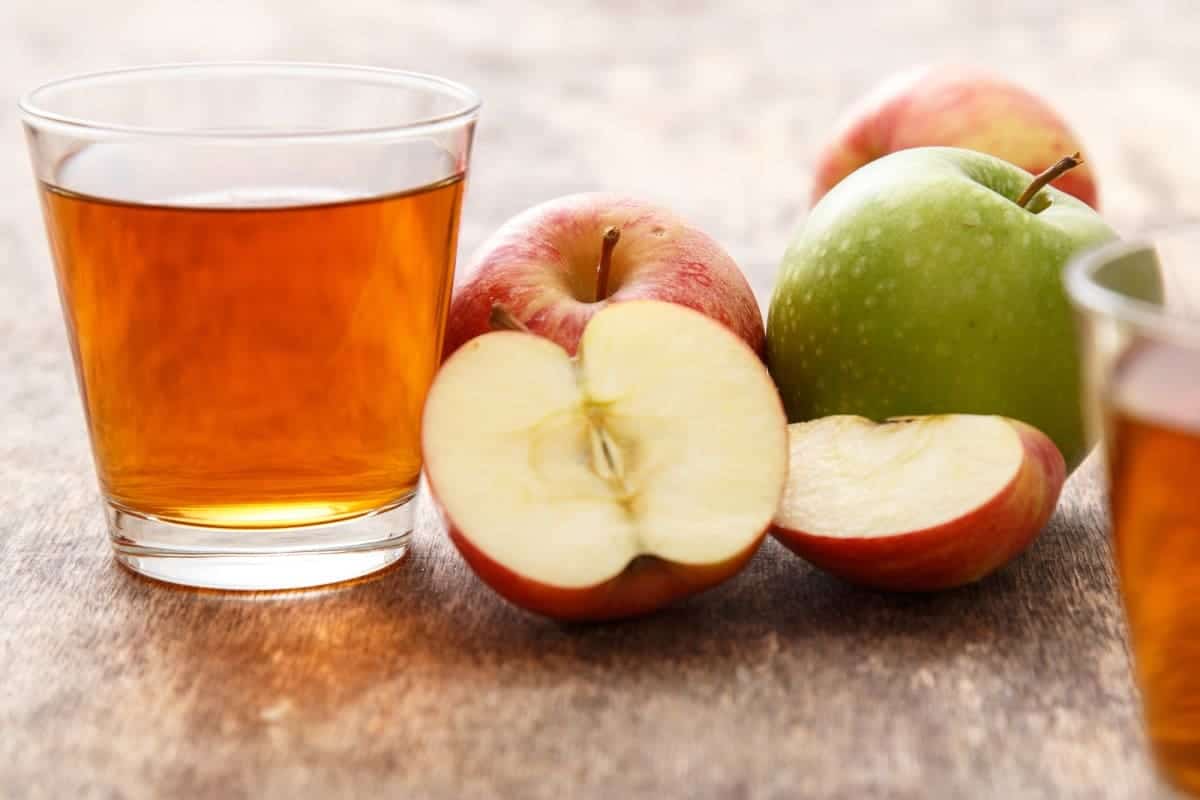
For a similar flavor to apple cider, use high-quality apple juice without added sugar. It offers a fruity flavor and slight sweetness that closely resembles the taste of real cider.
To use apple juice as an apple cider substitute, the ratio is typically 1:1. If you want to mimic the tanginess of apple cider, you can add a tablespoon of lemon juice or apple cider vinegar per cup of apple juice too.
Best for just about anything.
2. White Vinegar with Citrus Zest or Juice
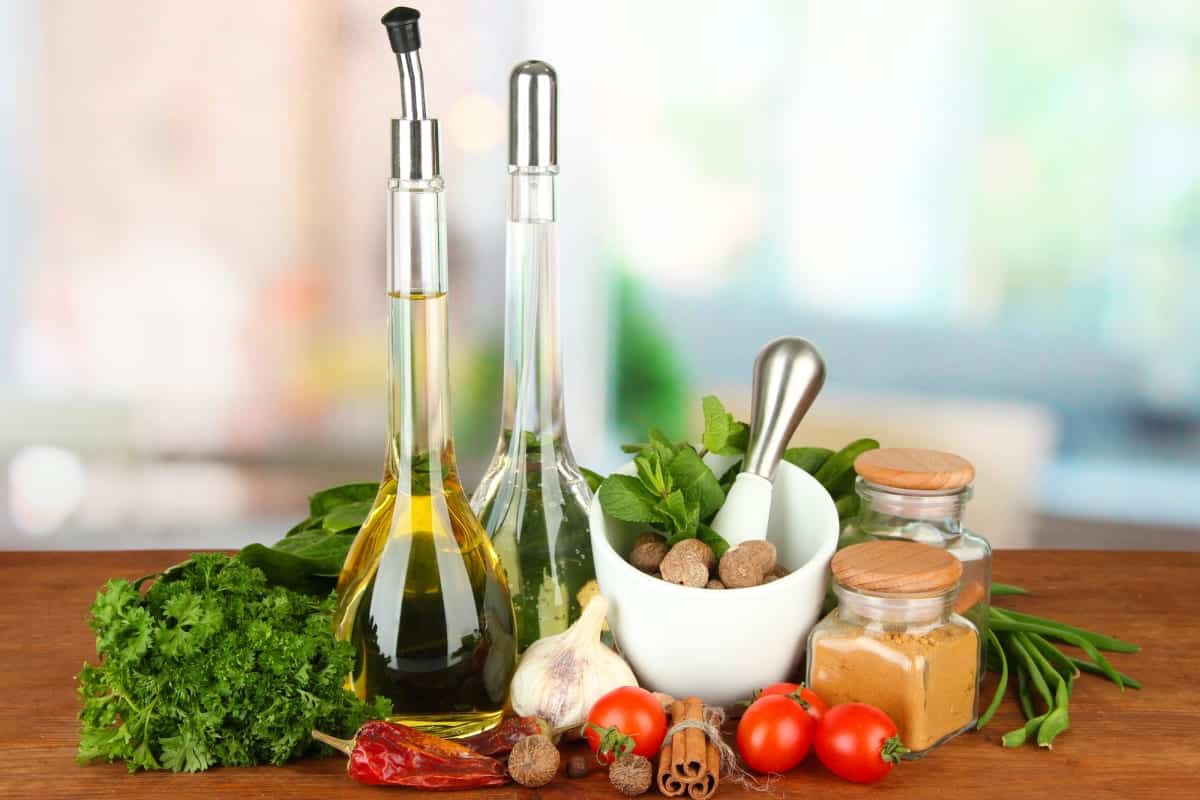
White vinegar, combined with lemon or lime zest, can be used as an excellent substitute when acidity is required in a recipe. The addition of citrus provides a similar tangy flavor profile found in apple cider.
To use white vinegar with citrus zest or juice as an apple cider vinegar substitute, I follow this ratio:
- 1 tablespoon of white vinegar
- 1 teaspoon of freshly squeezed citrus juice (lemon or orange work well)
- A pinch of citrus zest (optional for additional flavor)
This mixture is equivalent to 1 tablespoon of apple cider vinegar.
Best for meat marinades, sauces, tangy salad dressings, and baking recipes.
Related: Need a Champagne Vinegar Substitute for Your Next Salad Dressing? Look No Further
3. Lemon Juice
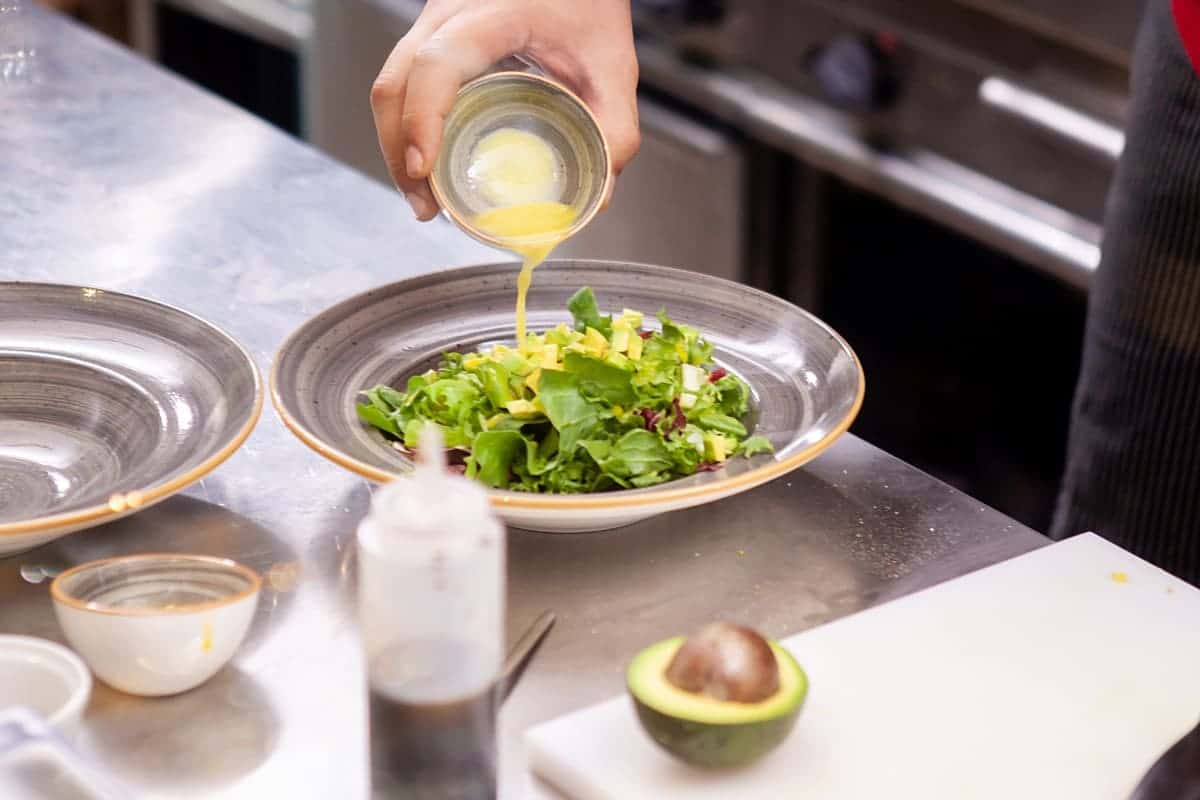
Given its acetic acid content and tartness, lemon juice serves as a suitable replacement for apple cider in terms of the flavor profile. However, it may require some adjustments to balance out the sourness by adding brown sugar or honey if necessary.
Measurement-wise, I like to use equal parts of lemon juice to the amount of apple cider vinegar called for in the recipe.
Best for bread, baked goods, salad dressings, marinades, sauces, and pickles.
4. Rice Vinegar
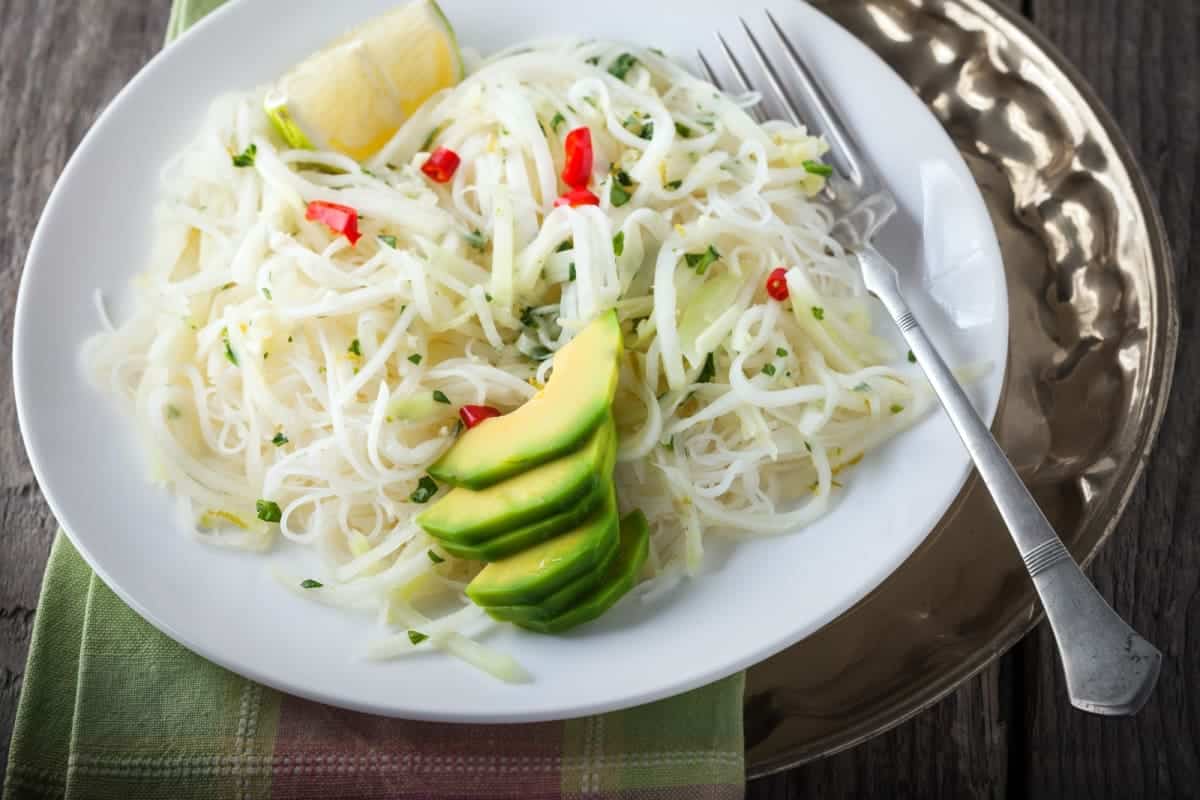
Rice vinegar is an excellent choice for salad dressings and marinades. It gives dishes a subtle sweet-tart flavor reminiscent of apples. This makes it another great option when substituting apple cider in various recipes.
To use rice vinegar as an apple cider substitute, mix it with water in a 1:1 ratio. This means for every 1 part rice vinegar, you should use 1 part water. For example, if a recipe calls for ¼ cup of apple cider, you can use 2 tablespoons of rice vinegar mixed with 2 tablespoons of water.
Best for salad dressings, pickles, sauces, marinades, and baked goods.
Fruit Juices as Apple Cider Substitutes
Some fruit juices offer excellent alternatives to apple cider due to their natural sweetness and tangy undertones. These options include pear juice and pineapple juice. However, adjustments may be necessary when using these substitutes in recipes requiring specific sweetness levels.
5. Pear Juice
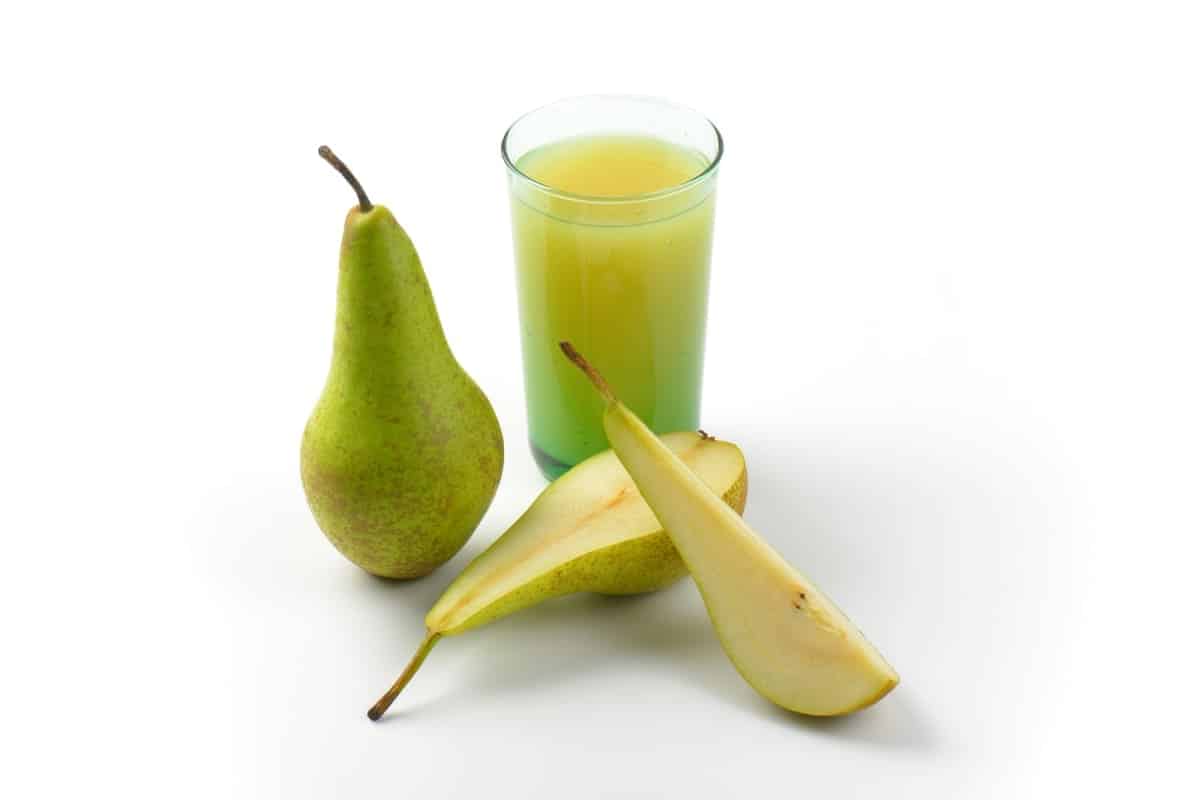
Pear juice is a great alternative to apple cider, possessing an analogous fruity flavor with some sweetness. To use pear juice in place of apple cider, simply replace the required amount of apple cider 1:1 with pear juice. To add an extra dimension of flavor, consider incorporating a splash of lemon or lime juice into your recipe.
Best for slightly sweet salad dressings, marinades, glazes, poached fruits, baked goods, and drinks.
6. Pineapple Juice as a Substitute
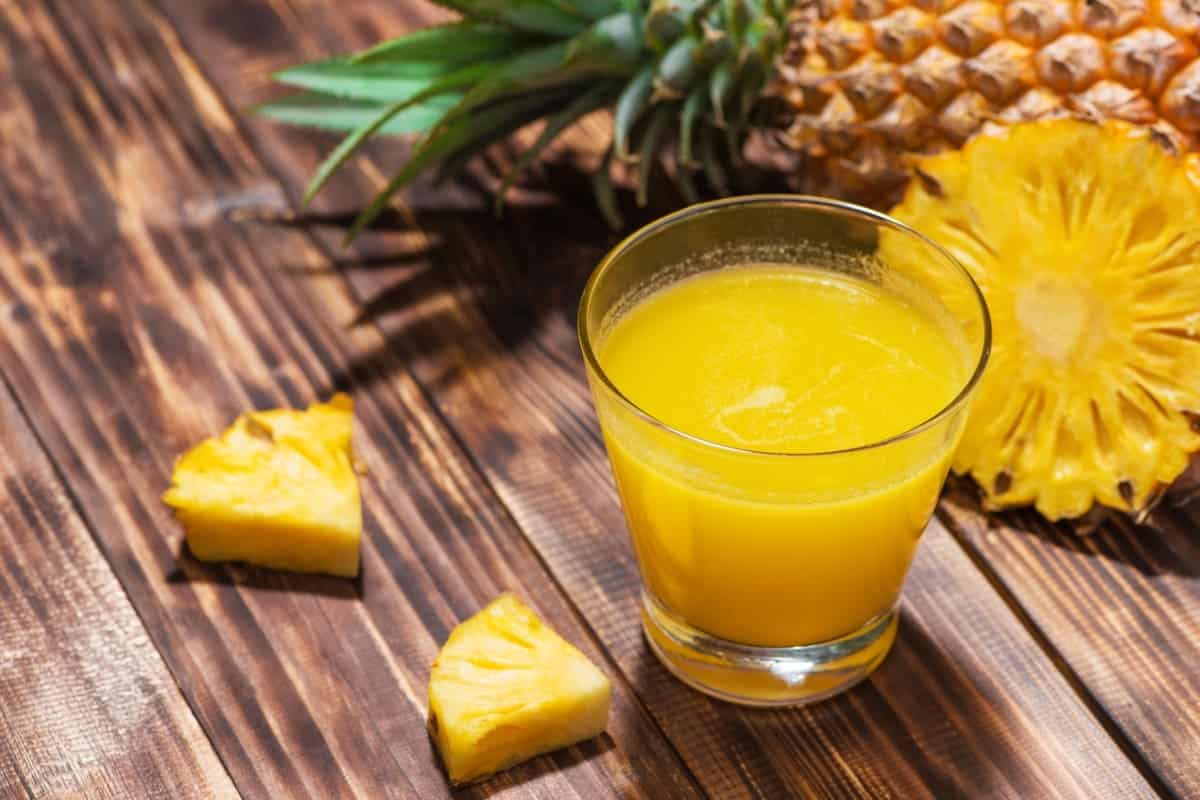
Pineapple juice is another great option for replacing apple cider, bringing both sweet and tart notes to your dish. When substituting pineapple juice for apple cider, start by using half the amount called for in the recipe and adjust according to taste preferences.
Keep in mind that pineapple's tropical flavor might not suit every dish; therefore, it works best in salad dressings or marinades where its unique taste can shine through.
Best for marinades for meat, fish, or tofu, and in salad dressings, sauces, and drinks for a sweet and tangy flavor with a tropical twist.
Substituting fruit juices can be a smart choice for achieving the same taste and texture of apple cider without needing to purchase it. However, vinegar-based alternatives offer another option for those looking for an alternative that is still flavorful and easy to use.
Vinegar-Based Alternatives for Apple Cider
Two popular options are red wine vinegar and white wine vinegar, both of which offer unique characteristics that make them suitable replacements depending on the specific dish being prepared.
7. Red Wine Vinegar
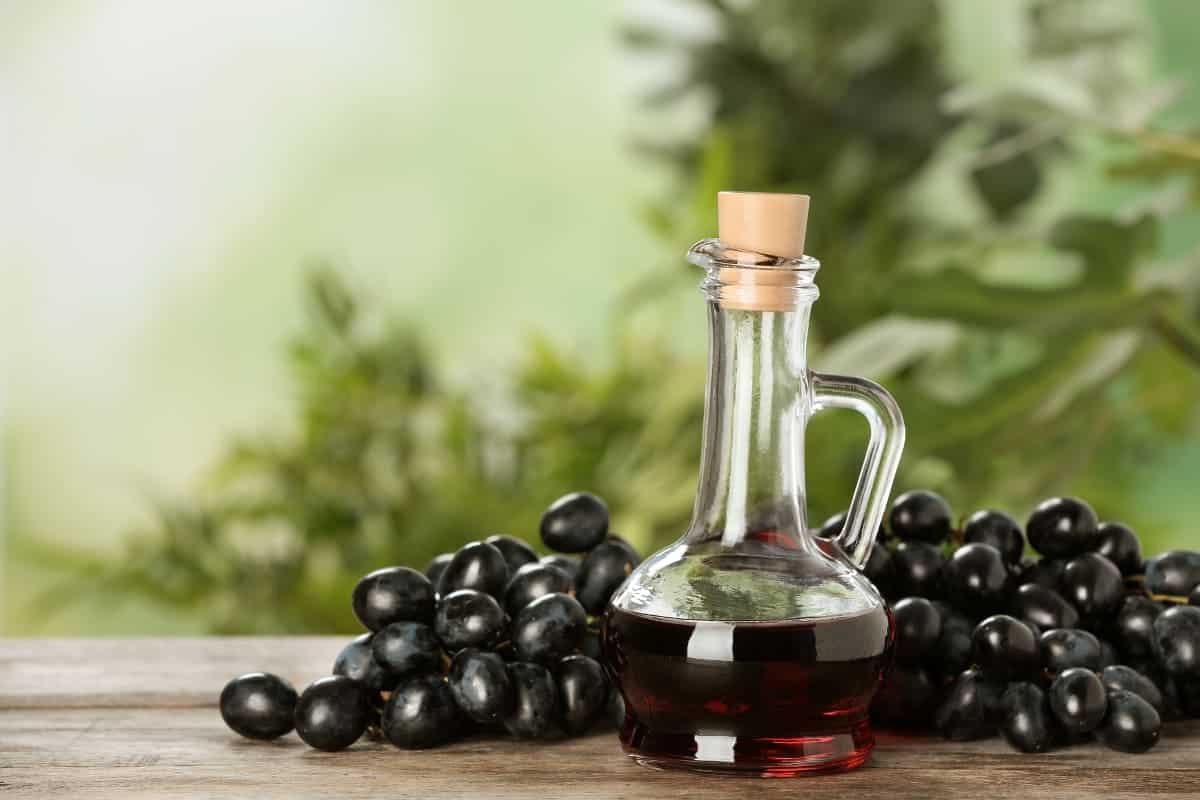
Red wine vinegar has a fruity flavor with slight sweetness, making it an excellent substitute for apple cider in salad dressings, marinades, and sauces.
To use red wine vinegar as a replacement, simply swap it out at a 1:1 ratio.
Best for salad dressings, marinades, pickling, deglazing a pan, and for adding some tang to cooked vegetables or sauces.
8. White Wine Vinegar
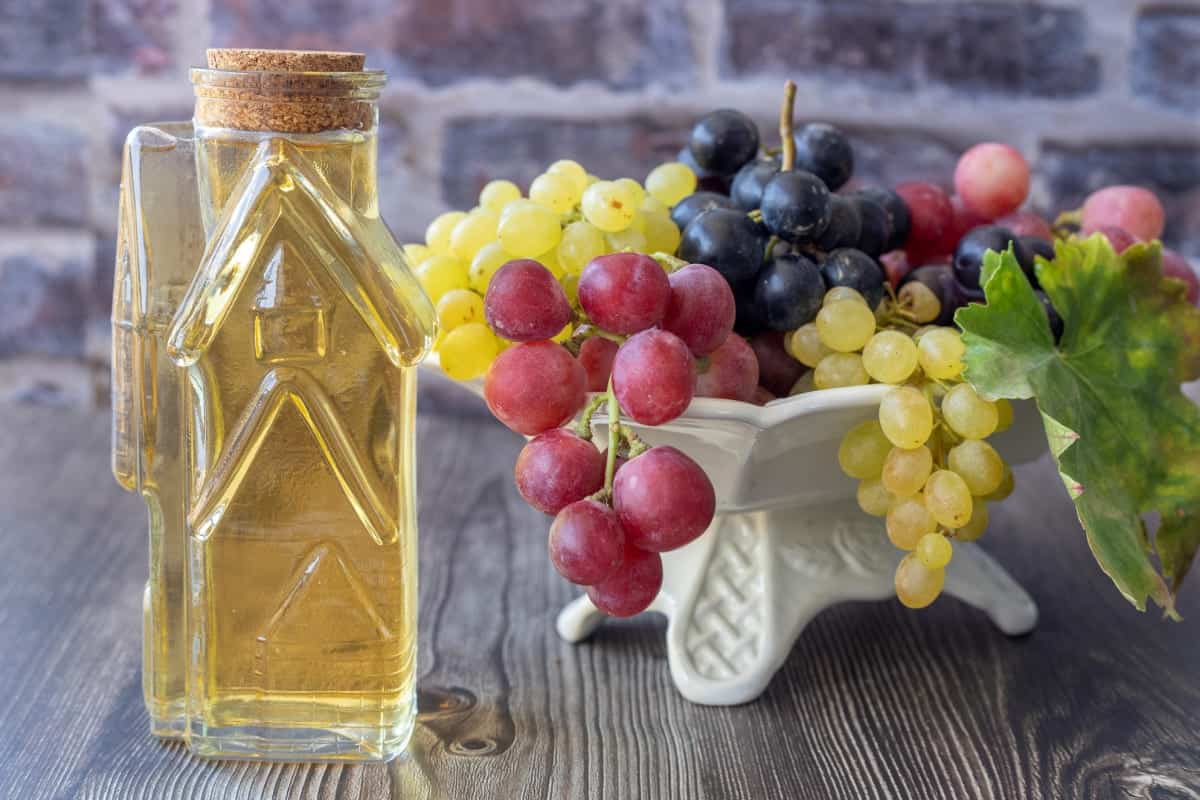
White wine vinegar, on the other hand, has a milder taste compared to red wine vinegar but still offers enough acidity to replace apple cider effectively. When substituting white wine vinegar for apple cider, start by using equal amounts, then adjust according to taste preferences if needed.
Best for salad dressings, marinades, sauces, and pickling recipes, providing a mild and slightly fruity flavor to complement the dish.
In addition to these two vinegars, balsamic vinegar, rice vinegar, and sherry vinegar can also be considered as apple cider substitutes in certain recipes, providing a range of flavors and acidity levels to suit various culinary needs.
Vinegar-based alternatives for apple cider substitution can be a great way to add flavor and depth to recipes without the added sugar of traditional apple cider. Producing a personalized batch of freshly-made apple cider is an excellent selection that provides you with the capability to adjust the sweetness, sourness, and overall flavor.
FAQs in Relation to Apple Cider Substitute
There are several substitutes for apple cider, including high-quality apple juice, white vinegar, lemon or lime juices, rice wine vinegar, and red wine vinegar. Each substitute has its own consistency and flavor profile that can be used to achieve the desired taste in recipes.
To substitute apple cider with apple juice in a recipe, use an equal amount of high-quality unsweetened apple juice. If the recipe requires more tanginess or acidity than provided by the juice alone, add a small amount of lemon or lime juice as needed.
Yes, you can replace one tablespoon of apple cider with two tablespoons of diluted (50% water) unsweetened high-quality fruit-based vinegars like white wine vinegar or rice wine vinegar. However, keep in mind that this may alter the overall flavor and sweetness level depending on your specific recipe.
A healthier alternative to traditional alcoholic ciders would be non-alcoholic versions made from fresh-pressed apples without added sugars. Additionally, apple cider vinegar, when consumed moderately mixed with water (1-2 tablespoons per 8 oz.), offers potential health benefits such as improved digestion and blood sugar control.
What is a healthier alternative to cider?
A healthier alternative to traditional alcoholic ciders would be non-alcoholic versions made from fresh-pressed apples without added sugars. Additionally, apple cider vinegar, when consumed moderately mixed with water (1-2 tablespoons per 8 oz.), offers potential health benefits such as improved digestion and blood sugar control.
Creative Ways to Replace Apple Cider in Your Cooking
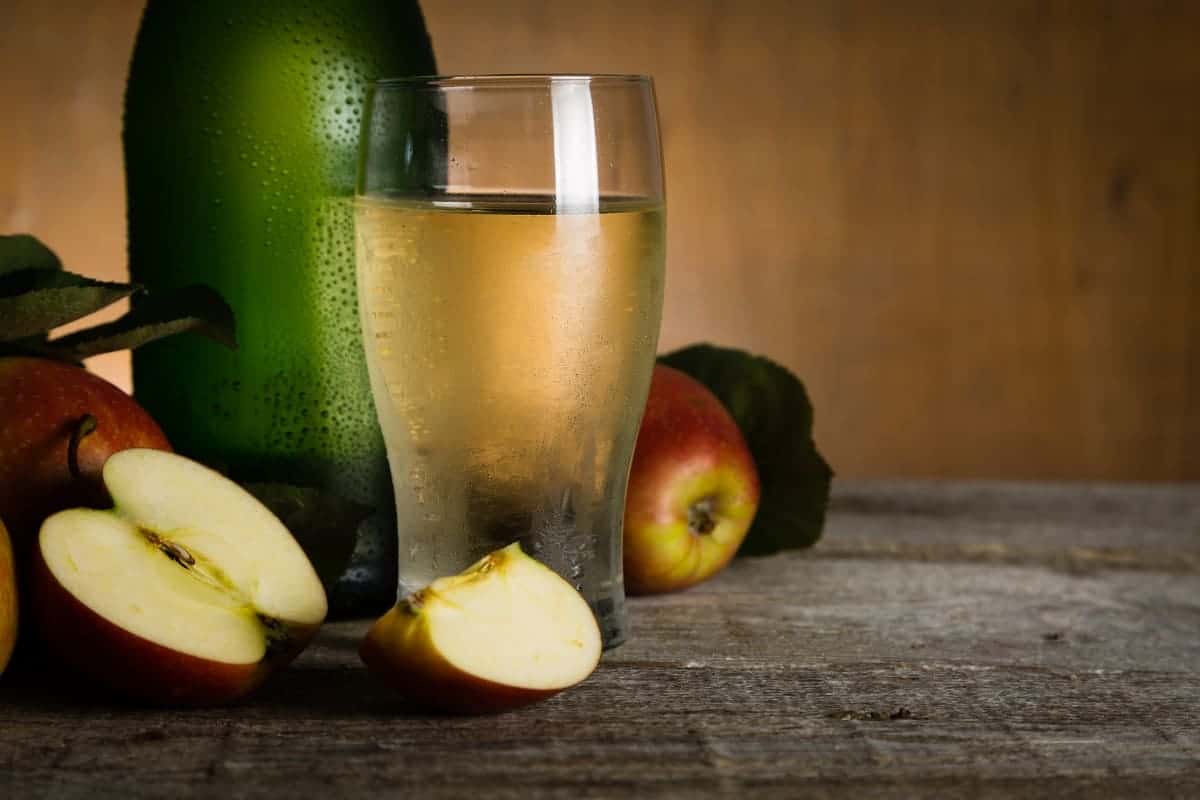
To sum up, apple cider is a multifaceted ingredient with numerous health benefits and can be utilized in different recipes.
However, when you don't have it on hand, there are several substitutes available such as high-quality apple juice, white vinegar, lemon or lime juices, rice wine vinegar, red wine vinegar, and champagne vinegar.
Each substitute has its own unique consistency and flavor profile that can be experimented with to suit different recipe requirements.
When using apple cider substitutes in your cooking or baking endeavors, consider adding citrus zest for extra tanginess and being mindful of sweetness levels when using fruit juices.
Additionally, if you're feeling adventurous or want to try something new altogether—creating homemade alternatives requires patience but can lead to delicious results!
If you're looking for more recipe inspiration or tips on how to elevate your culinary skills further, head over to Also The Crumbs Please, where they offer an array of resources catering to aspiring chefs who love experimenting with flavors.
Recipe

Homemade Apple Cider Recipe
Equipment
- Soft brush
- Sharp knife
- Cutting board
- Blender or food processor
- Cheesecloth
- Sieve
- Large pot
- Stirring spoon
Ingredients
- 12-15 high-quality apples (a mix of tarts and sweet varieties, such as Granny Smith and Honeycrisp)
- water (enough to cover the apples in the pot)
Instructions
- Wash apples under running water using a soft brush if necessary to remove dirt and debris. Remove stems but leave peels intact as they contribute color and additional nutrients during processing.
- Cut each apple into quarters or eighths, depending on size. This makes blending easier while maximizing juice extraction.
- Puree using an appropriate appliance such as a blender or food processor until a smooth consistency is achieved.
- Squeeze out liquid through a cheesecloth-lined sieve, collecting extracted juice below the container.
- Add optional spices such as cinnamon sticks, cloves, nutmeg, or allspice berries to enhance the overall taste and aroma.
- Simmer the mixture on low heat for approximately 2 hours, stirring occasionally to prevent sticking or scorching on the bottom of the pot.
- Cool completely before transferring into airtight containers and storing in the refrigerator for up to two weeks for consumption.
Notes
You can find the video in the post above. If you don't see a video, please check your browser settings.


Leave a Reply